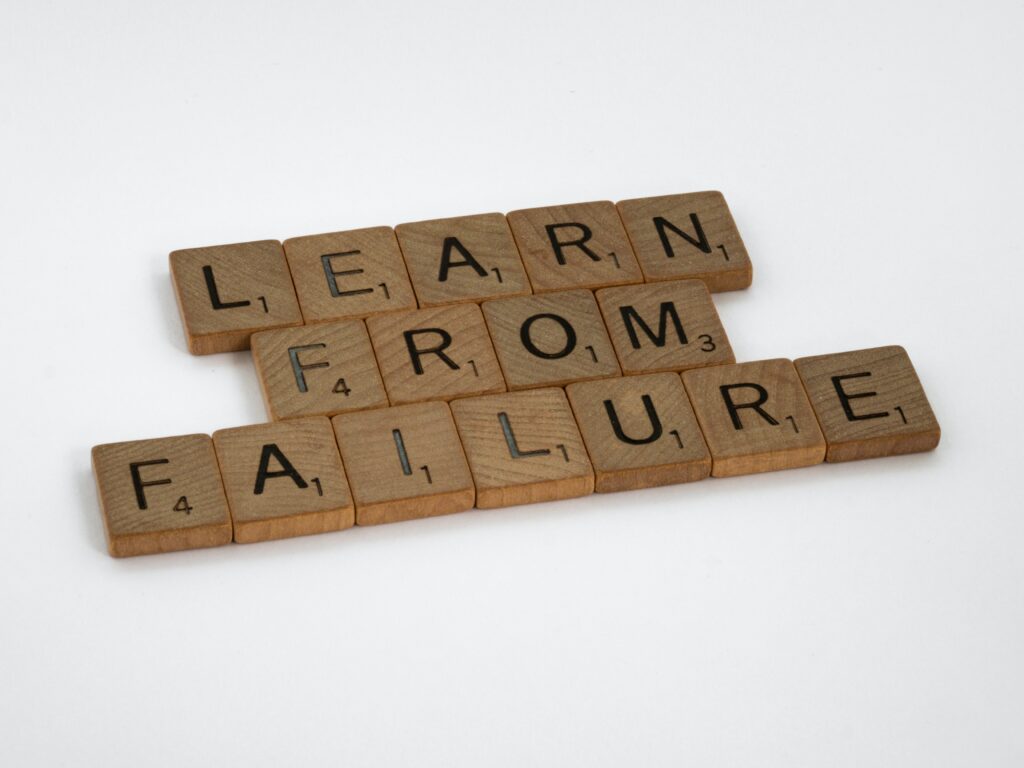Today concludes my four-part series about leadership failures — here are parts one, two, and three. As a reminder, this series stemmed from thinking about my leadership failures in 2022. I am sharing them because I think the lessons are relevant to all leaders, and I hope this series will make you think about your own leadership and what you can do better.
Part 4: I Fail To Lead From the Front
It’s crucial to find balance as a leader — not only making decisions, doing hard things, and serving as the leader — but also allowing those you lead to do those things. This dichotomy is something that leaders (including myself) struggle with, which was why I was delighted to read former Navy SEALs Jocko Willink and Leif Babin’s book about this topic, which helped influence and solidify my thoughts. As Jocko and Leif point out, every leader needs to follow at some point.
Golf Caddy v. Head Coach
One of the things I encourage readers of this blog to do is to get to know themselves, their tendencies, and what they gravitate to. For example, my leadership style is more golf caddy than head coach — I like to set up a game plan with those who follow me (see the KRA mentioned in Leadership Failure Part 2) and then let them do the work or “hit the shots.”
This is different than a head coach approach in several ways. Unlike a golf caddy, the head coach is there every step of the way. They might call a time-out and change strategy mid-game. They may critique performance during the game. They are much more hands-on in every regard.
My golf caddy leadership style works well when the person I’m leading is a high performer, but not so well for those who need more constant input. So I need to get the hiring process right (something I’ll cover another time).
What Does a Leader Do From the Front?
What I discovered in 2022, however, is that there are MORE potential weaknesses in my leadership style. I realized this by leading high performers. None of my direct reports performed poorly in 2022 — in fact, I would argue they performed very well! But this experience helped me clarify what my role needs to be going forward in the C-suite, surrounded by good leaders. (Note: even if you aren’t part of the C-suite, the three things I mention below still apply.)
Think about this: If a leader is someone worth following, and leadership is the process of doing things with and through other people, what does a leader do from the front?
That depends. If the leader is surrounded by low performers, s/he could easily go back to doing the work. And this is tempting for leaders because “doing the work” is what they used to do and probably helped them earn their leadership position. But when you’re surrounded by high performers who are already doing the work and doing it well, what is a leader to do?
Daily Vision
I’ve learned that my top priority is casting the vision. I know — many of my readers are saying, “Well, duh!” I said the same thing myself a year ago! But I’ve learned that I need to change the frequency of how often I cast that vision. I need to do it daily.
Yes, daily.
I need to cast vision every single day, and if you’re in senior leadership, so do you. The “Where are we going?” and “Why are we going there?” questions are the most important ones we need to answer on a daily basis.
This is a more specific answer to the advice, “Work on the business and not in the business,” which sounds good but isn’t that helpful until you understand precisely what you need to work on.
Leader-Only Activities
Next, there are activities that only you, the leader, can do. My executive coach shared with me the criteria that Dave Ramsey uses:
- What is broken?
- What is new?
- What is the brand?
These “buckets” are out at the front, and the front is exactly where you need to be! Now this doesn’t mean you come in on a white horse when there’s a problem. You are not the hero — the heroes are the people doing the tasks. Your role is to be at the front, shielding the people from the blows.
What does that mean?
It means that you play the role of David against Goliath — you go to the battlefield first, willing to take on the giant’s wrath. Think about yourself as the Chief Relationship Officer: you meet with the disgruntled team member, the ticked-off customer, or the concerned community member. You shield your team from these things so they can spend time doing the work.
This is neither easy nor glamorous, which is why many leaders give in to the temptation and go back to doing the work. The work feels better and is easier to measure. Constantly taking on Goliaths is harder to measure, harder to do, and harder to endure.
But it’s what you need to do leading from the front.
Affirm from the Front
Finally, a reminder that you need to affirm from the front. Giving affirmation may feel soft, but it’s one of the most challenging things you do when surrounded by good leaders. You may assume they don’t need encouragement or affirmation, but in reality, they probably aren’t getting it from anywhere else in the office. I make this statement because they, too, are leaders. So unless their followers are genuinely telling them what they are doing right, who is?
You need to be that person.
It is what makes you worth following.
I’m not saying you say something that is not genuine or true. I am simply saying that thanking someone after they spent a week overseas visiting customers goes a long way.
In conclusion, leaders are out at the front, exposed, and willing to do the hard (and sometimes awkward) things.
It is not glamorous.
It is leadership.







